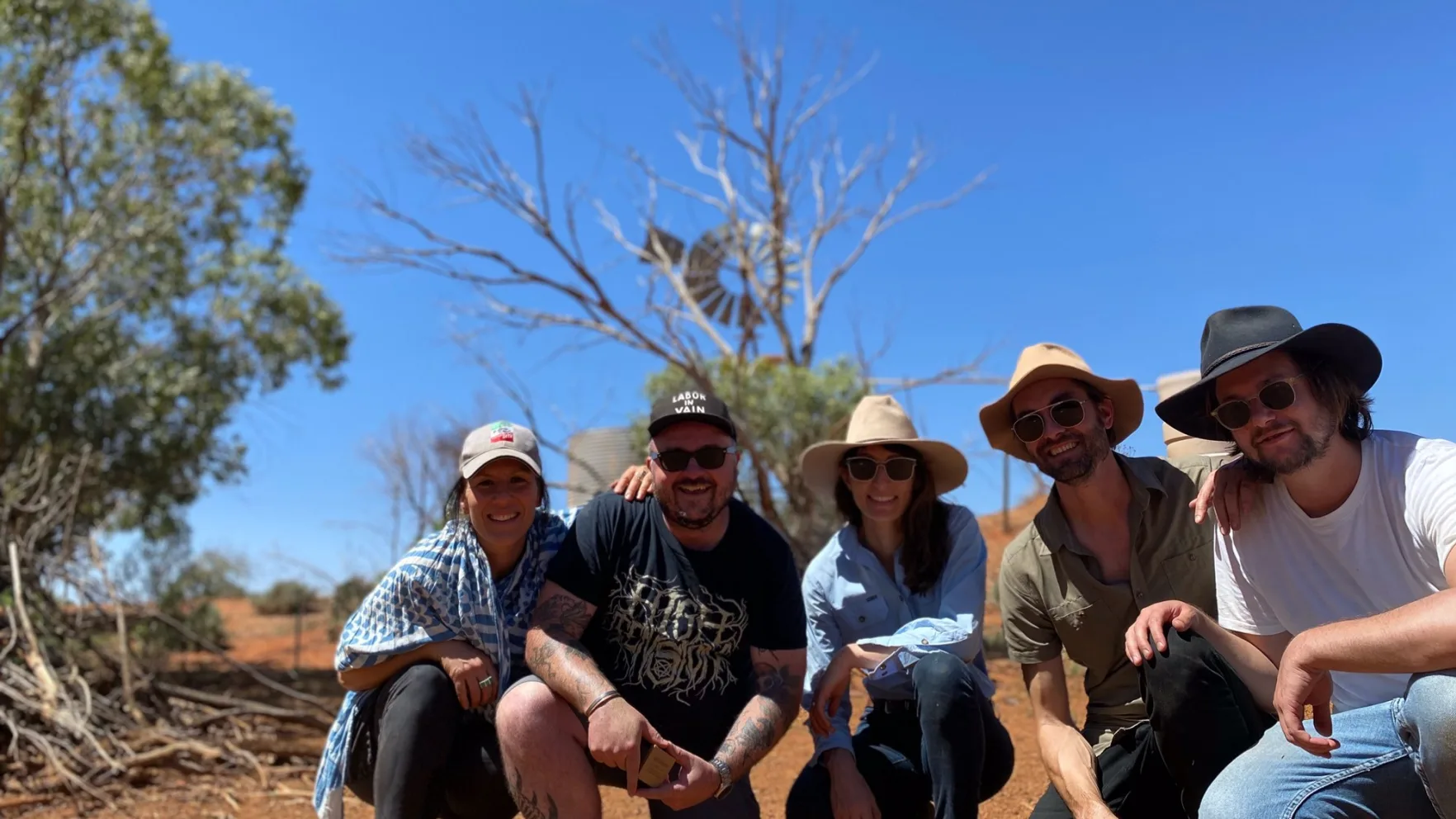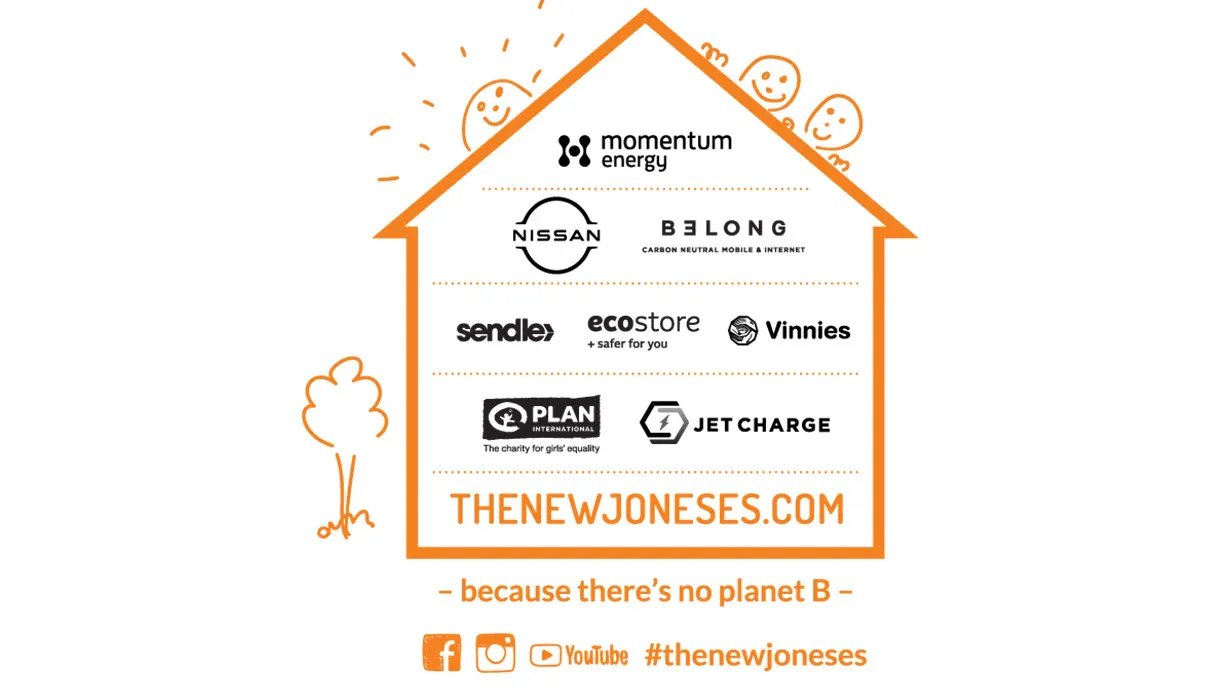
Living like The New Joneses
Top tips to help make your life more green
Less keeping up, more slowing down
In 2019, Belong became Climate Active-certified. That meant making a promise to offset the greenhouse gas emissions we – and our products and services – produced.
It was around that time that we linked up with The New Joneses – the Aussie project teaching us all how to take it a little easier on the planet.
And while our Climate Active certification ended in 2024 (when we shifted our focus to reducing emissions instead), these pro-planet tips The New Joneses shared with us have absolutely stuck around.
Keep food scraps out of landfill
Your food waste deserves a better resting place than your trash can.
You wouldn’t think it, but when thrown in your regular trash, food waste creates a heap of greenhouse gases (namely methane). However, when disposed of correctly, your food scraps can help nourish the earth instead. How ace.
What is ‘correct disposal’ for food scraps, you ask? Why a compost, of course!
Don’t have space for your own personal compost? Me neither (#apartmentlife). Do your research — many local councils have a compost on offer. You could even use it as a chance to meet your neighbours to suss out if they’ve got a compost you can share.
Grow some food
There’s something really satisfying about whipping up a salad with the fruits of your own labour. It’s also really satisfying for Mother Nature.
Growing a few of your own produce items helps reduces the overall carbon footprint of your meal. Silverbeet is a great place to start, as it’s sturdy and hard to over-love.
If you don’t have room to grow your own, look up ‘community gardens near me’ on the web and see what your local area already has on offer.
Eat more veggies
Remember how your mum always said you couldn’t have ice cream till you’d finished your broccoli? Those were wise words.
Vegetables are great for us, and they’ve got a pretty darn good environmental impact as well. By eating more veggies that are locally produced and in season, we reduce the amount of resources it takes to grow, transport and store our meals.
Vegetables can be the superstars of our dishes — it’s just about knowing what to do with them! If you think about veggies first when it comes to mealtime, you’re doing yourself and the environment a favour.
Embrace your green thumb
Whip out the gardening gloves and get green.
Trees help to soak up carbon dioxide in the air and improve the overall health of the soil they’re planted in, meaning they give back to nature in many ways. They also look pretty, so it’s a win-win really.
Extra points for considering what you’re planting — by choosing plants that attract native pollinators, you’re offering butterflies, bees, and pollinating birds a place to rest and feed as they move around our cities.
Support renewables
Fun fact: The state of Tasmania is now powered by 100% renewable energy.
It might be a little tricky for us all to go completely renewable in one fell swoop, but we can all make a few simple switches to get on the way.
Move to an energy company that is supporting the switch and investing in renewable energy sources like solar, wind and hydro.
Educate girls
Educating girls is a secret weapon against climate change.
Across the word, girls are flying the green flag — they are leading growth in green industries, and acting for political change.
If you can, do your research and donate to organisations that are supporting girls’ education — like Plan International, the charity for girls’ equality — to help equip more girls with the tools to make a greater impact.
Cut out carbon
Excess fossil fuel burning leads to a buildup of greenhouse gases, like carbon dioxide, in the atmosphere.
Where possible, choose to avoid carbon. Switch up your ride to something more planet-friendly. Ride a bike or electric scooter, walk, or take public transport.
Switch to services and suppliers (banks, super funds, suppliers, telcos, energy providers) that reduce their emissions, or are powered by green energy.
Avoid packaging
Recycling is really good stuff, but in many cases, we can do even better by just avoiding unnecessary packaging altogether.
If you want a real eye-opener as to how many disposable coffee cups end up in landfill each day in Melbourne alone, check out this video from War on Waste.
Switch to reusable where you can. Think: keep cups, straws, water bottles, face masks, and shopping bags. Swap out everyday household items for a more sustainable option, like replacing your plastic toothbrush with one made from eco-friendly materials like bamboo.
Heal country
We need to engage with, and better understand, the wisdom and knowledge of First Peoples’ connection with Country, which has continued for more than 65,000 years in Australia.
Re-connect with your Land — do your research and find out the Traditional Owners of the Land you live on. Proactively seek First Nations wisdom — find their local co-op and connect.
Make use of the cultural resources around you, like museums and history centres, to discover more about First Nations wisdom and history.
Conclusion
Feeling empowered to make some changes to help cut Mother Nature some slack? Us too. After all, there is no planet B, and we kinda love it here.
Belong partnered with The New Joneses to help encourage sustainable switches. For more information and tips on how we can do better for the people and the planet, head on over to The New Joneses.
